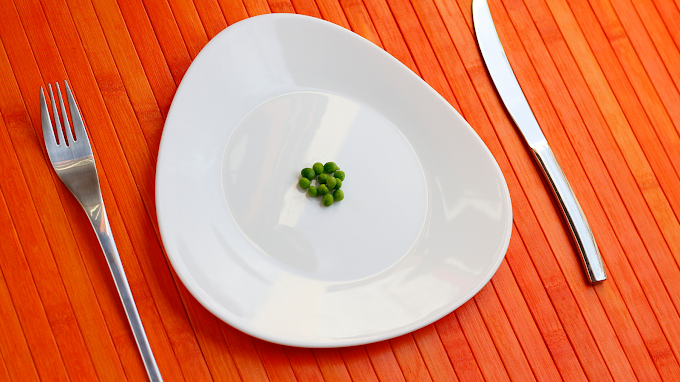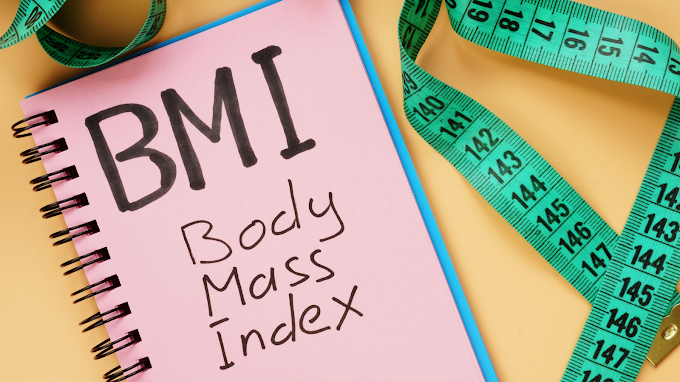(Haz clic aquí para leer en español)
When you first embark on a journey for weight loss while being fully motivated, everything seems to start nicely: You're eating the right meals (fresh produce and full of color), staying in a calorie deficit, and working out without missing a day. But then, you get up on the weight scale, and your motivation suddenly disappears... Your weight is exactly the same, or even higher than when you started! You feel miserable and like you failed, but you just don't know why?
Does this sound familiar to you? Because it is something that most women have struggled with (including me). I can't miss those days when I would get up all nervous and check my weight only to feel insulted by the number the scale said and have an entire day ruined. It's like I believed my value as a person was dictated by the number on that scale!
What to expect when you start your weight loss journey?
When you start your weight loss quest, you may expect to see immediate results shortly after consuming a balanced diet or performing any exercise. To be honest, this is precisely what all women anticipate for themselves! It is not your fault that you feel this way because it is human psychology to presume that lower the number on the weight machine, better will it be for your body. The problem is that we can't see behind the weight scale of how it operates and how it measures our body. You can only see the figures playing with your emotions.
Unfortunately, a standard weight scale only weighs the body mass but does not tell us about the body components that make the scale move higher. The entire weight consists of fat, muscle mass, bone density, and water content. Even sophisticated scales that measure your fat percentage and other components can have skewed results if you're not adequately hydrated. Many things can hide the truth of your body weight, and these factors include...
#1 Not only Fats but Muscles also have some weight!
Many women strive to lose fat and gain muscle while expecting that they will instantly get a fit and toned body along with relatively low weight. But, when they climb up the scale after a strenuous workout, it tells a totally different story. When dealing with such a situation, you need to be aware that muscle mass is more dense than fat, so even if you're losing fat, the added bulk of your muscles will appear as extra pounds on the scale. Similarly, many other determinants can increase the figures.
It would be best if you only focused on what your body looks like and how healthy you feel. If you feel active, stronger, and healthier than before, then it doesn't matter what the weight scale tells you.
#2 Sweat doesn’t mean fat-loss.
During or after exercising, many women have a habit of weighing themselves to know how many pounds or kilos they've lost within minutes, and eventually, they end up disappointing themselves. If you're constantly hydrating yourself during exercise, you may not see instant results on your weight. After all, your liquid intake replaces the water you've lost via sweat, so the weight displayed on the scale will be equal to before maybe a few pounds higher because even water has weight.
#3 You may be retaining water, due to certain foods or hormonal changes.
Your body is like a machine; foods go in and out all the time while modifying your body's internal condition, resulting in a fluctuating weight. Every meal, even the salads, and dietary foods consist of a mass that can add up the extra pounds appearing on the scale.
High-sodium and carbohydrates tend to lead to water retention in your body and make the numbers go higher. It would help if you considered waiting until you fully digest and dispose of such foods before checking the end results. Women are more likely to get addicted to processed and sugary foods, especially during their menstrual cycle, which can cause water retention and raise the feeling of weighing heavier. In order to avoid water retention, you should eat foods that are high in magnesium and potassium.
#4 Regular Weighing might not indicate progress and sometimes it’s Useless
Weight can fluctuate constantly, and this is something that we can't control. Not even the healthiest and fittest person can! Regular weight evaluation is meaningless because nothing changes in just a day or two; you should weigh yourself after a long time or at least after a month or more to see gradual changes. It should only be a piece of information or a method to keep track of your fat loss plan and not something to get emotionally attached to it. A slight increase of pounds can blind you from your success plans and lead towards the road of endless frustration and depression. So don't rely only on your weight, alternatively, judge your weight loss plan as a whole.
Conclusion: Find more alternatives to measure your goals
There are numerous other ways to track your performance: You can try taking pictures of your body every month, using a measuring tape, trying a pair of jeans to see if these fit better, and see how you feel. It can help you determine the difference you made by diet and exercise rather than just one piece of data.
Furthermore, I am not saying that you shouldn’t have aesthetic goals when embarking on a fat loss journey, but try setting up smaller process goals… Like jumping higher, having less difficulty when doing burpees, having more energy or simply improving your mental health!
Do you need help with your fat loss journey? Contact me and together we can set up a plan where you will start seeing results without getting frustrated.
















0 Comments